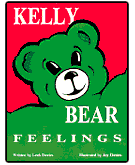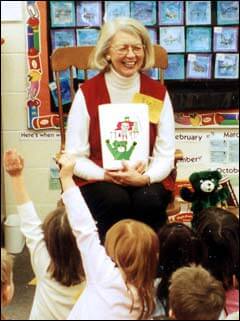My book, How Your Teen Can Grow a Smarter Brain, and most of the hundreds of articles on this blog, address how to encourage, support and coach a young person during the adolescent years to wire their prefrontal cortex (PFC) for the thinking skills that they’ll need to be a happy, successful and independent adult.
Yes, at puberty the PFC begins a momentous second phase of development.
But when that window of development opens, the PFC doesn’t have to be like a blank slate. The PFCs of little kids are ready for establishing thinking skills, and with the right coaching from parents and teachers, they can wire their brains for a number of executive functioning and critical thinking skills.
These kids can arrive at puberty with an advantage. The second wave of blossoming in the PFC can happen with the beginnings of a foundation already constructed.
For over 40 years, author, counselor and educator Leah Davies has been on a mission to empower parents and teachers of young elementary kids with support materials to do just that. These tools include children’s books, dvds, games and adult guides that help teach kids to focus on personal health and safety, understand and manage their emotions, self-regulate their behavior, and relate to each other in positive ways.
To make the learning fun and accessible, all the activities center on a green cartoon bear named “Kelly Bear.”
 One of the many children’s books is Kelly Bear Feelings. Each page has brief text with a facing illustration page. For example, one page focuses on embarrassment, a common emotion that can lead to counterproductive behavior:
One of the many children’s books is Kelly Bear Feelings. Each page has brief text with a facing illustration page. For example, one page focuses on embarrassment, a common emotion that can lead to counterproductive behavior:
“When I spilled my juice at school, I felt so embarrassed. It went all over the table and the floor. Some bears laughed, and my face felt hot. I almost cried. I’ll always remember how bad I felt, but do you know what happened next? My friend said, “I did the same thing once.” It made me feel better to know that I’m not the only bear who makes mistakes.”
Vignettes like this are followed by questions for the kids:
- Has anyone ever laughed at you?
- When do you feel embarrassed?
- What do you do when you feel that way?
When the kids answer, the adult listens and asks more open-ended questions. These discussions cause the kind of reflection that leads to self-awareness and understanding. Kids learn to recognize and think about their emotions before they express them in behavior.
Kids who benefit from this kind of social-emotional learning are better prepared to have happier, more trouble-free learning years. And they aren’t starting at zero when puberty arrives. Hundreds of thousands of adults worldwide have used these resources to help young students manage their emotions and behavior so they can focus on learning.
For someone like me, who is helping adolescent children grow smarter brains, knowing that many young people have a head start makes me more than excited.
So when I hear the question, “This sounds great for teens, but my child is still very young. Is there anything I can do now?” I tell them about the Kelly Bear resources. They come with adult guides. Young kids love them. And the benefits are enormous. Check it out: www.kellybear.com.

